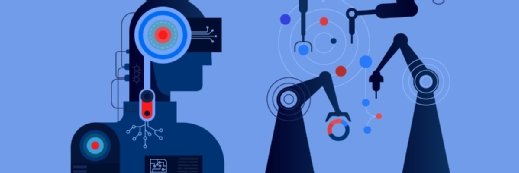
Getty Images
Study Uses Artificial Intelligence for Alzheimer’s Drug Development
Researchers will use artificial intelligence to discover new biomarkers and drug targets for Alzheimer’s disease.
A team at the Perelman School of Medicine at the University of Pennsylvania will leverage artificial intelligence to find patterns in genetic, imaging, and clinical data from over 60,000 Alzheimer’s patients, with the goal of identifying new biomarkers of the disease.
With a $17.8 million grant from the National Institute on Aging at NIH, Penn Medicine investigators will partner with 11 research centers to determine more precise diagnostic biomarkers and drug targets for Alzheimer’s disease, which impacts nearly 50 million people globally.
Researchers and developers are still searching for effective Alzheimer’s disease drugs, but experts believe that identifying biomarkers – early biological signs of the disease – will help uncover treatments. However, the rapid collection of data from tens of thousands of Alzheimer’s patients far exceeds the scientific community’s ability to make sense of it, setting the stage for innovative AI tools to gain new insights from this information.
The NIH-funded study will represent one of the largest and most ambitious research undertakings of its kind.
“Brain aging and neurodegenerative diseases, among which Alzheimer’s is the most frequent, are highly heterogeneous,” said Christos Davatzikos, PhD, a professor of Radiology and director of the Center for Biomedical Image Computing and Analytics “This is an unprecedented attempt to dissect that heterogeneity, which may help inform treatment, as well as future clinical trials.”
Diversity within the Alzheimer’s patient population is a critical reason why many drug trials fail, researchers noted.
“We know that there are complex patterns in the brain that we may not be able to detect visually. Similarly, there may not be a single genetic marker that puts someone at high-risk for Alzheimer’s, but rather a combination of genes that may form a pattern and create a perfect storm,” said Li Shen, PhD, a professor of Informatics who will serve as two of five co-principal investigators on the five-year project.
“Machine learning can help to combine large datasets and tease out a complex pattern that couldn’t be seen before.”
The project’s first goal will be to develop a relationship between the three modalities – genes, imaging, and clinical symptoms – in order to identify the patterns that predict Alzheimer’s diagnosis and progression. This will also help researchers distinguish between several different types of the disease.
“We want to redefine the term ‘Alzheimer’s disease.’ The truth is that a treatment that works for one set of patients, may not work for another,” Davatzikos said.
Researchers will then use these findings to build a predictive model of cognitive decline and Alzheimer’s disease progression, which can be used to guide treatment for future patients.
The project will also use data from the Alzheimer’s Disease Sequencing Project, another NIH-funded effort that aims to identify new genomic variants that contribute to – as well as ones that protect against – Alzheimer’s development.
This NIH grant builds on other recent funding from the organization to improve disease outcomes with artificial intelligence. Penn Medicine researchers recently announced that they had received a $3.2 million grant from NIH to determine the likelihood that a cardiac patient will accept or reject a new heart using AI.
The team will analyze cardiac biopsy tissue images to distinguish potential cardiac rejection grades and detect patterns of immune cells that reveal the mechanism of rejection.
“This research is focused on a critical component of heart transplantation—improving patient outcomes. Unfortunately, the number of patients with end-stage heart failure is increasing. But research like this is another step in the right direction for improving survival and quality of life for heart failure patients,” said Kenneth B. Margulies, MD, a professor of cardiovascular medicine at Penn.




